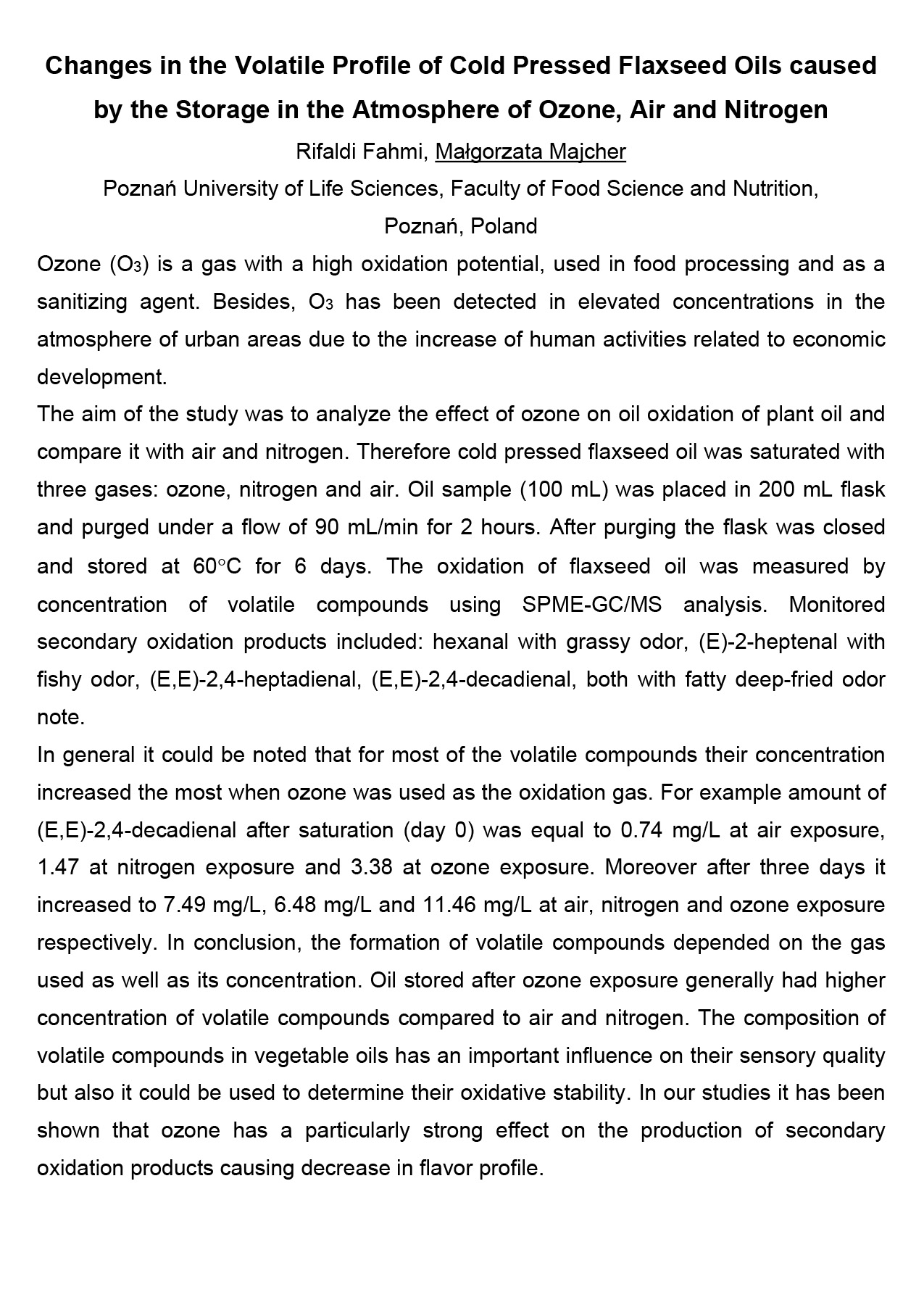Ozone (O3) is a gas with a high oxidation potential, used in food processing and as a sanitizing agent. Besides, O3 has been detected in elevated concentrations in the atmosphere of urban areas due to the increase of human activities related to economic development.
The aim of the study was to analyze the effect of ozone on oil oxidation of plant oil and compare it with air and nitrogen. Therefore cold pressed flaxseed oil was saturated with three gases: ozone, nitrogen and air. Oil sample (100 mL) was placed in 200 mL flask and purged under a flow of 90 mL/min for 2 hours. After purging the flask was closed and stored at 60°C for 6 days. The oxidation of flaxseed oil was measured by concentration of volatile compounds using SPME-GC/MS analysis. Monitored secondary oxidation products included: hexanal with grassy odor, (E)-2-heptenal with fishy odor, (E,E)-2,4-heptadienal, (E,E)-2,4-decadienal, both with fatty deep-fried odor note.
In general it could be noted that for most of the volatile compounds their concentration increased the most when ozone was used as the oxidation gas. For example amount of (E,E)-2,4-decadienal after saturation (day 0) was equal to 0.74 mg/L at air exposure, 1.47 at nitrogen exposure and 3.38 at ozone exposure. Moreover after three days it increased to 7.49 mg/L, 6.48 mg/L and 11.46 mg/L at air, nitrogen and ozone exposure respectively. In conclusion, the formation of volatile compounds depended on the gas used as well as its concentration. Oil stored after ozone exposure generally had higher concentration of volatile compounds compared to air and nitrogen. The composition of volatile compounds in vegetable oils has an important influence on their sensory quality but also it could be used to determine their oxidative stability. In our studies it has been shown that ozone has a particularly strong effect on the production of secondary oxidation products causing decrease in flavor profile.
